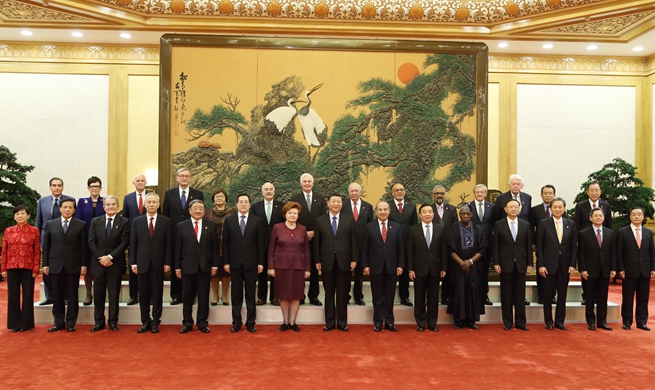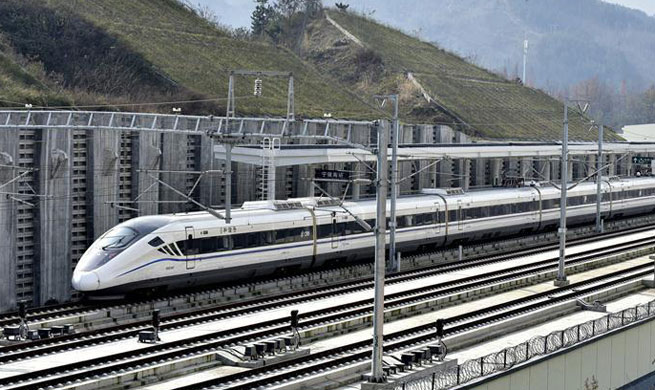LONDON, Nov. 30 (Xinhua) -- The large depreciation in sterling seen since the Brexit process began has increased expenses for British export firms, according to a report issued Thursday, but also stimulated overseas sales.
There are strong price pressures for exporters in long overseas supply chains or importing raw materials caused by weak sterling.
And sterling's weakness, which began immediately after the Brexit referendum vote in June 2016 when it fell from 1.48 U.S. dollars to 1.22, is pushing up raw material costs and supply chain costs, while also boosting some export orders.
British exporters are absorbing the impact through stronger sales, the Quarterly Trade Outlook report from industry representative body, the British Chambers of Commerce (BCC).
"The depreciation has had a somewhat negative effect on businesses," BCC head of trade policy Anastassia Beliakova told Xinhua on Thursday afternoon.
"The most significant immediate impact of Brexit was the fall in sterling. A lot of exporters import as well and it has put pressure on their costs particularly where they are buying raw materials."
Beliakova said this had been "a steady trend over the past year" and that the price pressures are not abating.
However, weak sterling also benefited exporters, making goods more competitively priced.
Beliakova said: "It depends on the balance between how much business is importing and exporting. Those that have goods sourced from within Britain have seen great benefit over the past year, those that are part of quite lengthy supply chains and import a lot from outside Britain have seen a more mixed picture."
The BCC's Trade Confidence Index, which measures the volume of trade documentation issued by accredited Chambers of Commerce for goods shipments, rose by 2.25 percent on the quarter, and stands at the third highest level on record.
The results of the survey indicate the price pressure from the cost of raw materials is high across the board for exporters (86 percent in manufacturing, 42 percent in services), and just over two thirds of exporting manufacturers consider exchange rates as a concern to their business.
The stimulus to some export firms means that they are trying to recruit new staff, but a record number of jobs in Britain and unemployment at 4.3 percent, a low not seen for more than 40 years, means that skilled staff are becoming increasingly difficult to find.
Beliakova said: "Low levels of unemployment and the difficulty of finding staff with the right skills as well as the uncertainty of Brexit for EU citizens in Britain, it has been quite challenging hiring workings over the past year and more so over the past quarter."
She added: This is something that affects companies abilities to invest and expand and make long-term plans."

















